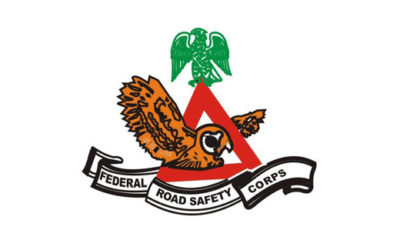society
THREE AND HALF DECADES OF ENTRENCHING SAFETY ON NIGERIAN ROADS: A TALE OF THE FRSC LEADERSHIP EXPERIENCE – BISI KAZEEM

THREE AND HALF DECADES OF ENTRENCHING SAFETY ON NIGERIAN ROADS: A TALE OF THE FRSC LEADERSHIP EXPERIENCE – BISI KAZEEM
Nigeria is one of the few African countries that has leveraged on some road safety principles and have recorded remarkable progress in road safety administration and management despite a ‘gloomy’ beginning. The road safety situation in Nigeria was so deplorable that the World Health Organisation once described the country as ‘worst in the world to travel on’ only next to Ethiopia.
That narrative changed through government’s efforts by establishing the Federal Road Safety Commission as the Lead Agency to guarantee safety on every centimetre of Nigeria’s expansive road network of 204,000km. This establishment was done ten years prior to United Nations recommendation for all member states to establish agencies directly situated under the central government for ease of unfettered operation.
The vision behind the establishment of the Federal Road Safety Corps which is to eradicate Road Traffic Crashes on Nigeria roads is based on the premise that road crashes are caused and highly preventable. Over the last three decades or more, and arising from the above statistics of deaths, injuries and damage to properties, can Nigerians confidently posit that the Federal Road Safety Corps has made policies and embarked upon programmes and activities that are in harmony and consistent with global best practices on Road Traffic Administration and Safety Management? Can we possibly say that the paramilitary outfit has achieved its statutory mandate of eradicating Road Traffic Crashes on Nigerian roads? Can the FRSC be said to have educated the motoring public enough? Have they been able to entrench safe road use culture into drivers in Nigeria? Answers to these and many more questions on Road Safety will give us a sense of direction as to whether or not the 18 February, 1988 proclamation by the Military administration of President Ibrahim Babangida has actually saved the lives it was established to save.
Since coming on board, the Federal Road Safety Corps has as a matter of fact blossomed on all sides through strategic innovations and sheer resilience of it’s personnel, into one of the most professionally inclined and reputable national institution; and of course, a global brand and an exemplar of best road safety operations and practices in Africa.
Beginning from 18 February, 1988 when the Corps commenced full operational activities geared towards eradicating road traffic crashes, the Federal Road Safety Corps has brought down annual record of crashes from over Forty Thousand crashes per year to below Five Thousand at the moment.
The Corps is and will always remain the frontline agency in traffic regulations in Nigeria. Being the lead government agency for traffic superintendent and guardianship and evolving from a humble beginning with it’s technical and management headquarters located at no 9 Oshuntokun Street, Bodija Ibadan, Oyo State and the outpost and liason office located in three story building in Wuse zone 2, Abuja with just a dozen Staff and 200 Youth Corps Members operating from 6 locations and striving to get it’s feet, to transforming into a mega force amongst paramilitary organisations in Nigeria with thousands of formations scattered across the 774 local governments in the country.
Through unprecedented innovations in information and communication technology and effective operational tools, FRSC has grown to become a reference point in excellent service delivery in Nigeria; the benchmark for road safety management and administration in Africa and an exemplar of global best practices in it’s operations.
The Corps has also been well known in terms of it’s origin and trajectory which has the imprimatur of Africa’s first Nobel Laureate for Literature, Prof Woke Soyinka, who made it a project and agency to behold. From the pioneer Corps Marshal, Dr. Olu Agunloye to Chief Osita Chidoka all of whom were appointed from the civil population, the Corps witnessed a formidable foundation laying processes that has provoked effectiveness, efficiency and pragmatism in road safety administration in Nigeria. The icing on the cake on these developmental stride came with the appointment of career Staff as Corps Marshal from Boboye Oyeyemi to the present Corps Marshal, Dauda Ali Biu whose innate experience and expertise has and is still giving the Corps the needed push necessary for it to stay atop.
The luscious development is that in its thirty five years as lead agency in traffic and safety management, the Federal Road Safety Corps (FRSC) has recorded tremendous achievements in the area of Traffic Engineering, Road Safety Administration, Traffic Management, rescue operation,changing bad road use behaviour and Crash reduction. The road traffic management Agency achieved this glorious feat, through a chain of pragmatic leadership, sagacity of different generations of management, ingenuity of its Policy formulators and the dexterity of the handlers of policy implementation.
These leaders have entrenched within the Corps, a wealthy culture of professionalism and excellence in service delivery, which has positioned it as the lead agency in road safety management and traffic administration, with a passionate and enduring commitment to creating a safer motoring environment that is unequalled in the African sub-region. This unquenchable commitment asserts undue pressure on the Corps; thereby propelling it to more than ever before, continue to strengthen its strategies, programmes, knowledge and processes, capable of surmounting all challenges militating against effective and efficient administration of safety in Nigeria.
Just as stated in previous publications, it is most imperative to bring to the fore that beginning from the second decade of the Corps’ existence, frantic efforts have been put in place to expand both the internal and external horizons of the Corps with more robust collaborations on all fronts that has led to a paradigm shift in road safety administration, from Traditional approach to Safe Systems Approach.
Through the use of state of the art Information Technology facilities; the Corps has been able to develop transformational initiatives focused on People, Processes and Technology (PPT) that is why today not only does it staff pride as the most disciplined, but the Corps stands as the best Information Technology (IT) driven organization in Nigeria with its robust data base and over 95 percentage digitalized administrative and operational procedures.
The current leadership of the Federal Road Safety Corps, headed by Dauda Ali Biu came on board in December, 2022 and from inception, the administration took bold steps towards the development of a vigorous framework for enhancing safe motoring environment in Nigeria. This strategic initiative has been the bedrock for the new innovations that have become ostensible in road safety administration and traffic Management in broad-spectrum. The laid foundation is premised on the resolve to place great attention to all the administrative variables that could enhance productivity, effectiveness and efficiency in the work process.
Part of these include, but not limited to improvement in equipment and other work tools such as the procurement of tow trucks for clearance of obstructions, patrol motorbikes, and patrol vehicles, (hilux), ambulances, and staff buses to convey staff to their workplace; employee motivation through improved welfare, and massive promotion of Officers and men which has been widely applauded by members of the FRSC nationwide; purposeful collaboration with all stakeholders such as transport stakeholders, media stakeholders, interagency collaboration, and civil society organizations. His administration is also upholding discipline in all areas.
With the strategies and tactics deployed for decisive continuity and innovation which the Corps has applied in the conduct of its affairs in the last few months, it is given that incredible improvements have been made in road safety management in Nigeria today; especially arising from the continuous involvement of staff in the process of strategy building and developments in operational front which is very significant and has stimulated buy-in in all policy areas.
The Corps has put in place an unambiguous vision and mission projections designed to guide its affairs on short, medium and long term endeavours.
BISI KAZEEM ,
FRSC’S CORPS PUBLIC EDUCATION OFFICER
society
Ramadan: Adron Homes Felicitates Muslims, Preaches Hope and Unity

Ramadan: Adron Homes Felicitates Muslims, Preaches Hope and Unity
Adron Homes & Properties Limited has congratulated Muslim faithful on the commencement of the holy month of Ramadan, urging Nigerians to embrace the virtues of sacrifice, discipline, and compassion that define the season.
In a statement made available to journalists, the company described Ramadan as a period of deep reflection, spiritual renewal, and strengthened devotion to faith and humanity.
According to the management, the holy month represents values that align with the organisation’s commitment to integrity, resilience, and community development.
“Ramadan is a time that teaches patience, generosity, and selflessness. As our Muslim customers and partners begin the fast, we pray that their sacrifices are accepted and that the season brings peace, joy, and renewed hope to their homes and the nation at large,” the statement read.
The firm reaffirmed its dedication to providing affordable and accessible housing solutions to Nigerians, noting that building homes goes beyond structures to creating environments where families can thrive.
Adron Homes further urged citizens to use the period to pray for national unity, economic stability, and sustainable growth.
It wished all Muslim faithful a spiritually fulfilling Ramadan.
Ramadan Mubarak.
society
Underfunding National Security: Envelope Budgeting Fails Nigeria’s Defence By George Omagbemi Sylvester

Underfunding National Security: Envelope Budgeting Fails Nigeria’s Defence
By George Omagbemi Sylvester | Published by saharaweeklyng.com
“Fiscal Rigidity in a Time of Crisis: Lawmakers Say Fixed Budget Ceilings Are Crippling Nigeria’s Fight Against Insurgency, Banditry, and Organized Crime.”
Nigeria’s legislature has issued a stark warning: the envelope budgeting system; a fiscal model that caps spending for ministries, departments, and agencies (MDAs) is inadequate to meet the country’s escalating security challenges. Lawmakers and budget analysts argue that rigid fiscal ceilings are undermining the nation’s ability to confront insurgency, banditry, kidnapping, separatist violence, oil theft and maritime insecurity.
The warning emerged during the 2026 budget defence session for the Office of the National Security Adviser (ONSA) at the National Assembly in Abuja. Senator Yahaya Abdullahi (APC‑Kebbi North), chairman of the Senate Committee on National Security and Intelligence, decried the envelope system, noting that security agencies “have been subject to the vagaries of the envelope system rather than to genuine needs and requirements.” The committee highlighted non-release or partial release of capital funds from previous budgets, which has hindered procurement, intelligence and operational capacity.
Nigeria faces a multi‑front security crisis: persistent insurgency in the North‑East, banditry and kidnappings across the North‑West and North‑Central, separatist tensions in the South‑East, and piracy affecting Niger Delta oil production. Despite declarations of a national security emergency by President Bola Tinubu, lawmakers point to a “disconnect” between rhetoric and the actual fiscal support for agencies tasked with enforcement.
Experts warn that security operations demand flexibility and rapid resource allocation. Dr. Amina Bello, a public finance specialist, said: “A static budget in a dynamic threat environment is like sending firefighters with water jugs to a forest fire. You need flexibility, not fixed ceilings, to adapt to unforeseen developments.”
The Permanent Secretary of Special Services at ONSA, Mohammed Sanusi, detailed operational consequences: irregular overhead releases, unfulfilled capital appropriations, and constrained foreign service funds. These fiscal constraints have weakened intelligence and covert units, hampering surveillance, cyber‑security, counter‑terrorism and intelligence sharing.
Delayed capital releases have stalled critical projects, including infrastructure upgrades and surveillance systems. Professor Kolawole Adeyemi, a governance expert, emphasized that “budgeting for security must allow for rapid reallocation in response to threats that move faster than political cycles. Envelope budgeting lacks this essential flexibility.”
While the National Assembly advocates fiscal discipline, lawmakers stress that security funding requires strategic responsiveness. Speaker Abbas Ibrahim underscored that security deserves “prominent and sustained attention” in the 2026 budget, balancing oversight with operational needs.
In response, the Senate committee plans to pursue reforms, including collaboration with the executive to restructure funding, explore supplementary budgets and ensure predictable and sufficient resources for security agencies. Experts warn that without reform, criminal networks will exploit these gaps, eroding public trust.
As one policy analyst summarized: “A nation declares a security emergency; but if its budget does not follow with real resources and oversight, the emergency remains rhetorical.” Nigeria’s debate over envelope budgeting is more than an accounting dispute; it is a contest over the nation’s security priorities and its commitment to safeguarding citizens.
society
Rev. Mother Kehinde Osoba (Eritosin) Celebrates as She Marks Her Birthday

Rev. Mother Kehinde Osoba (Eritosin) Celebrates as She Marks Her Birthday
Today, the world and the body of Christ rise in celebration of a rare vessel of honour, Rev. Mother Kehinde Osoba, fondly known as Eritosin, as she marks her birthday.
Born a special child with a divine mark of grace, Rev. Mother Eritosin’s journey in God’s vineyard spans several decades of steadfast service, spiritual depth, and undeniable impact. Those who know her closely describe her as a prophetess with a heart of gold — a woman whose calling is not worn as a title, but lived daily through compassion, discipline, humility, and unwavering faith.
From her early days in ministry, she has touched lives across communities, offering spiritual guidance, prophetic insight, and motherly counsel. Many testify that through her prayers and teachings, they encountered God in a deeply personal and transformative way. Near and far, her influence continues to echo — not only within church walls, but in homes, families, and destinies reshaped through her mentorship.
A mother in every sense of the word, Rev. Mother Kehinde Osoba embodies nurture and correction in equal measure. As a grandmother, she remains energetic in purpose — accommodating the wayward, embracing the rejected, and holding firmly to the belief that no soul is beyond redemption. Her life’s mission has remained consistent: to lead many to Christ and guide them into the light of a new beginning.
Deeply rooted within the C&S Unification, she stands tall as a spiritual pillar in the Cherubim and Seraphim Church globally. Her dedication to holiness, unity, and prophetic service has earned her widespread respect as a spiritual matriarch whose voice carries both authority and humility.
As she celebrates another year today, tributes continue to pour in from spiritual sons and daughters, church leaders, and admirers who see in her a living reflection of grace in action.
Prayer for Rev. Mother Kehinde Osoba (Eritosin)
May the Almighty God, who called you from birth and anointed you for His service, continually strengthen you with divine health and renewed vigour.
May your oil never run dry, and may your prophetic mantle grow heavier with greater glory.
May the lives you have nurtured rise to call you blessed.
May your latter years be greater than the former, filled with peace, honour, and the visible rewards of your labour in God’s vineyard.
May heaven continually back your prayers, and may your light shine brighter across nations.
Happy Birthday to a true Mother in Israel — Rev. Mother Kehinde Osoba (Eritosin).
More years.
More anointing.
More impact.
If you want this adapted for a newspaper page, church bulletin, Facebook post, or birthday flyer, just tell me the format and tone.
-

 celebrity radar - gossips6 months ago
celebrity radar - gossips6 months agoWhy Babangida’s Hilltop Home Became Nigeria’s Political “Mecca”
-

 society6 months ago
society6 months agoPower is a Loan, Not a Possession: The Sacred Duty of Planting People
-

 society5 months ago
society5 months agoReligion: Africa’s Oldest Weapon of Enslavement and the Forgotten Truth
-

 news6 months ago
news6 months agoTHE APPOINTMENT OF WASIU AYINDE BY THE FEDERAL GOVERNMENT AS AN AMBASSADOR SOUNDS EMBARRASSING












